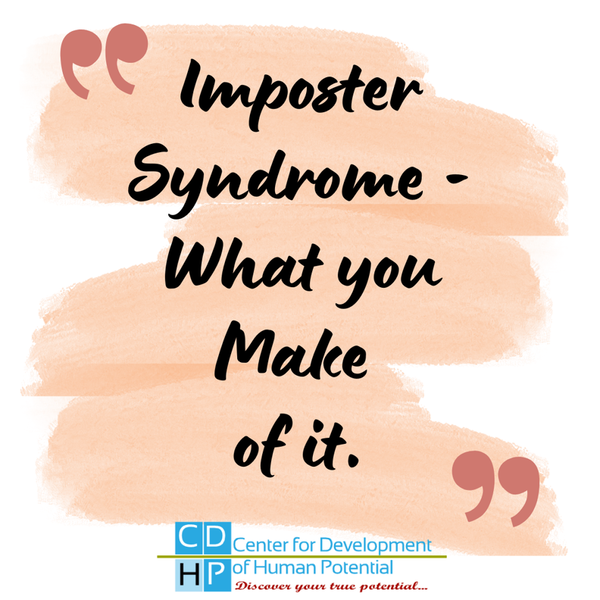Imposter Syndrome is a term that has gained significant attention in recent years. It refers to an individual’s persistent fear of being exposed as a fraud, despite evidence of their competence and accomplishments. The term was first coined by psychologists Pauline Clance and Suzanne Imes in the 1970s to describe high-achieving individuals who felt like they did not deserve their success.
Despite its prevalence, Imposter Syndrome remains largely unaddressed in many workplaces, leading to negative consequences for both employees and employers. Individuals experiencing this phenomenon may feel isolated, anxious, and overwhelmed. They often struggle with self-doubt and perfectionism, which can lead to burnout and decreased productivity. At the same time, organizations may experience high turnover rates due to talented employees leaving because they do not feel valued or supported.
Given the potential impact on employee well-being and organizational performance, it is essential to understand why Imposter Syndrome occurs and how it can be addressed effectively. In this article, we will explore some of the underlying causes of Imposter Syndrome and provide practical strategies for overcoming it. By empowering individuals to recognize their worth and capabilities, we hope to create more inclusive work environments where everyone feels valued and motivated to succeed.
Defining Imposter Syndrome
Imposter syndrome is a psychological phenomenon characterized by persistent fear of being exposed as an intellectual fraud, despite evidence to the contrary. It can affect individuals across different professions and educational backgrounds, from students to seasoned professionals. The term was first coined in 1978 by psychologists Drs. Pauline Clance and Suzanne Imes, who observed among high-achieving women that some felt like imposters or frauds in their professional lives.
One defining feature of imposter syndrome is the tendency for individuals to downplay their accomplishments while attributing their successes to external factors such as luck, timing, or help from others. They may also feel undeserving of recognition or praise for their achievements, believing that they have somehow deceived others into thinking they are more competent than they actually are. This self-doubt can lead to anxiety, stress, and feelings of inadequacy which may impact one’s personal life and career goals.
Although not officially recognized as a mental disorder by the Diagnostic and Statistical Manual of Mental Disorders (DSM), imposter syndrome has been acknowledged as a common experience shared by many successful people. In fact, researchers estimate that up to 70% of people will experience imposter feelings at some point in their lives. While it is often associated with perfectionism and anxiety disorders, anyone can develop imposter syndrome regardless of age, gender identity, race or ethnicity.
In summary, imposter syndrome refers to the internalized belief that one is not deserving of success or recognition due to perceived inadequacies or lack of competence. Individuals experiencing these symptoms tend to attribute their accomplishments externally rather than acknowledging their own contribution towards achieving them. While this feeling affects many individuals across various sectors worldwide – its specific causes remain unclear – which we will discuss next.
Causes Of Imposter Syndrome
Imposter syndrome is a phenomenon experienced by many individuals who doubt their own abilities and accomplishments, despite evidence to the contrary. While imposter syndrome can be caused by various factors, most researchers point to internal or external pressures as its primary causes.
One major cause of imposter syndrome is perfectionism. Individuals who strive for perfection often set unrealistic expectations for themselves and are unable to accept anything less than perfection. As a result, they experience feelings of inadequacy and self-doubt when they fail to meet their own high standards. This type of pressure can also come from external sources such as family members or colleagues, which further exacerbate these feelings.
Another significant factor in causing imposter syndrome is social comparison. When individuals compare themselves to others, particularly those they perceive as successful or talented, it can trigger negative thoughts about one’s own achievements and capabilities. This type of comparison leads people to believe that everyone else has it all figured out while they feel like an impostor in their respective fields.
Lastly, cultural and societal expectations play a role in fueling imposter syndrome. In some cultures, success may be defined narrowly based on academic performance or professional achievement; this narrow definition can create immense pressure on individuals who do not conform to these standards. Additionally, gender biases within certain professions mean women may face more challenges due to systemic prejudices against them.
In conclusion, multiple factors contribute to the development of imposter syndrome – including perfectionism, social comparison, and cultural/societal norms. These influences lead individuals down a path where they begin doubting themselves despite having several successes under their belt. Overcoming this debilitating issue requires acknowledging how these factors affect us personally and developing strategies that help manage our emotions effectively.
Overcoming Imposter Syndrome
Imposter syndrome is a phenomenon that affects individuals across various fields, where they doubt their abilities and feel like frauds despite evidence of their competence. Overcoming imposter syndrome requires understanding its underlying causes and taking proactive steps to address these issues.
For example, an individual who has recently been promoted may experience feelings of inadequacy as they adjust to new responsibilities. They may compare themselves to their colleagues or previous job performance, leading them to underestimate their skills and accomplishments. In this case, acknowledging the positive feedback received from peers and mentors can help reframe negative self-talk into more constructive thinking patterns.
Another strategy for overcoming imposter syndrome involves recognizing one’s strengths and weaknesses. Instead of striving for perfectionism in all areas, focusing on core competencies can improve confidence levels by honing specific skill sets. This approach can also facilitate setting realistic goals and seeking out opportunities for growth rather than being held back by fear of failure.
Finally, building a support network through mentorship or peer groups is essential in addressing imposter syndrome. Sharing experiences with others who have faced similar challenges can provide validation and perspective while encouraging accountability towards personal and professional development. By creating a culture of openness and vulnerability, individuals can overcome imposter syndrome collectively while fostering resilience against future episodes.
In conclusion, overcoming imposter syndrome involves introspection, reframing negative thought patterns, identifying strengths/weaknesses, focusing on achievable goals, and building supportive networks. While it may be challenging at times, taking proactive measures towards combating imposter syndrome contributes positively to overall well-being and career advancement.
Conclusion
Imposter Syndrome is a psychological phenomenon affecting individuals who experience persistent doubts about their abilities, and accomplishments and fear being exposed as frauds in social or professional settings. The condition often manifests among high-achieving individuals resulting in self-sabotage, anxiety, and depression. Studies have shown that women, minorities, and people from low socio-economic backgrounds are more susceptible to Imposter Syndrome due to systemic biases, stereotypes, and lack of representation. Other factors such as personality traits like perfectionism, critical self-evaluation and negative feedback can also contribute.
To overcome this syndrome, one must recognize the underlying causes and challenge irrational thoughts with objective evidence-based reasoning. Seeking support from mentors or peers can help provide validation and reassurance while reframing failure as part of the learning process rather than proof of inadequacy. Additionally, practicing self-care through mindfulness, exercise, and healthy habits can improve mental resilience against Imposter Syndrome.
Interestingly, research indicates that up to 70% of adults will experience Imposter Syndrome at some point in their lives regardless of their achievements or status. This statistic highlights the widespread prevalence and potential impact on personal well-being and career success if left unaddressed. By promoting awareness about Imposter Syndrome and implementing strategies for overcoming it, we can empower individuals to realize their full potential without feeling unworthy or fraudulent.







Comments
Add Comment